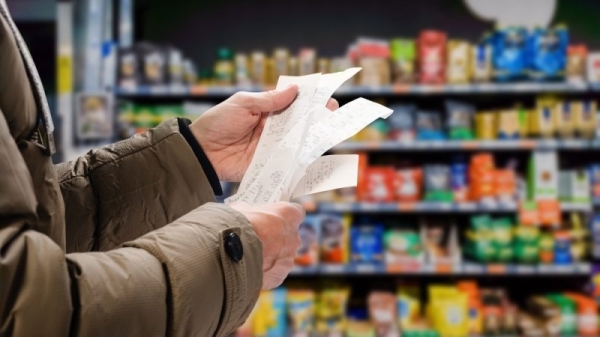Austrian government, industry stumped on slowing food inflation

Austria’s government and industry leaders failed at a food summit on Monday to find a consensus on tackling the ever-soaring inflation on food and drink products.
In March, the cost of food and non-alcoholic beverages in Austria rose by an average of 14.6%, according to Harmonised Index of Consumer Prices (HICP) calculations. By comparison, the increase was 17.9% in the Eurozone and 22.9% in Germany.
The food summit, which saw more than 40 participants discuss potential anti-inflation measures at the Social Affairs Ministry for over two hours, failed to reach any conclusions.
“I understand the longing for simple answers to complex questions,” Social Affairs Minister Johannes Rauch (Greens) told journalists afterwards, APA reported.
He added that there would be further consultations on the high food prices, for example, by Labour Minister Martin Kocher (ÖVP) with experts on Friday and on the margins of the Council of Ministers.
“There will be decisions quickly,” Rauch said.
Despite criticism from the opposition and workers’ representatives, Vice-Chancellor Werner Kogler (Greens) said it is “a complex problem”, and there are “different starting points”, noting that “the assessments and interests are quite different”, APA reported.
In any case, there is a need for the “stricter application and exhaustion of all possibilities of competition law,” he added.
“The food price summit has shown the broad spectrum of possible approaches and proposed solutions without identifying a ‘silver bullet’,” Senior Economist Franz Sinabell told EURACTIV.
According to him, the most important measures taken at the conference are those related to strengthening the competition authorities and providing sufficient data.
VAT abolition, food price database proposed
As a way to control food prices, Finance Minister Magnus Brunner (ÖVP) proposed Austria adopt a model like that of France where the government and major food retailers agreed to keep costs on various everyday products “as low as possible” from April to June – a model the country’s trade association and trade union reject as it would benefit some retailers.
Kocher, for his part, has suggested the implementation of a food price database – an idea that would replace the temporary abolition of VAT on basic foodstuffs as has been championed by the trade union, the Social Democrat SPÖ and the far-right FPÖ for some time now.
Yet, while the idea has been firmly rejected by the ÖVP, its green coalition partner is in favour, but only if traders pass on the tax reduction to consumers.
Still, “controversial measures” such as reducing the VAT should “not be ruled out” since, according to Sinabell, the dynamics of price development in Austria would be “generally worrying”.
“It is good that some countries have already done this and that we can learn from the experience. However, the findings are currently inconclusive,” he added.
Yet, according to the Austrian Retail Association’s Managing Director and the Federal Economic Chamber’s (WKÖ) Chairman of the Board of Trade, high supermarket prices are to be attributed to energy, rent, and taxes rather than the industry.
Retailers argue it is difficult to compare food prices in Austria and Germany due to various factors such as different VAT rates, labour costs, transportation expenses, and more regional and organic food in Austria.
Farmers’ representatives also noted that Austria has the highest number of supermarkets per 100,000 inhabitants compared to other EU countries.
The Retail Association’s CEO suggested an energy cost subsidy for traders and warned of the possible disappearance of small general shops.
(Chiara Swaton | EURACTIV.de)
Read more with EURACTIV




